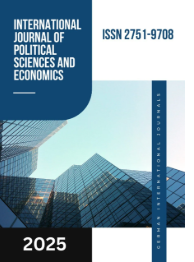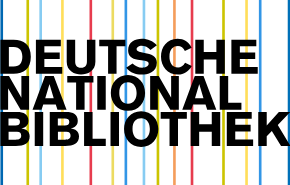SPEAKING WITH RESPECT: HOW CROSS-CULTURAL COMMUNICATION SUPPORTS SUSTAINABLE TOURISM
DOI:
https://doi.org/10.55640/Keywords:
intercultural competence, Sustainable Tourism, Cultural Intelligence, Central Asia, intercultural dialogue, tourism management, hospitality industry preparationsAbstract
In the context of the globalization of Tourism, intercultural dialogue is becoming an important factor in ensuring social stability in tourist destinations and promoting cultural sensitivity. This study analyzes the cross—cultural competencies of specialists in the tourism industry in the development of sustainable tourism, with the example of Uzbekistan, particularly in cases of misunderstanding caused by cultural differences between Chinese and Uzbek guests. The study is based on Bennett's model of cultural sensitivity and the theory of cultural intelligence (CQ), relying on a mixed-style survey of 20 tourism industry people from different ethnic groups. The results show that while participants find themselves highly flexible and aware, formal training and language barriers still remain an urgent problem. While respondents view cultural heritage preservation and mutual respect as a necessary factor for sustainability, the impact of communication on environmental behavior is insufficiently understood. This article proposes to rethink intercultural competence not as a social skill, but as a strategic resource in tourism management. In particular, the need for institutional approaches to teaching cultural knowledge in culturally changing areas such as Central Asia is justified.
References
Anak Agung Inten Mayuni, Ni Nyoman Kertiasih, Made Subur (2024). Cross-Cultural Communication Strategy in the Development of Pakudui Ecotourism Village, Tegallalang, Gianyar – Bali. International Journal of Social Science And Human Research, 7(01), -. https://europub.co.uk/articles/-A-729443
Anatolyevich Rubtzov, V. , Minnahmatovich Biktimirov, N. , Espinoza Hugo, B. and Viktorovich Rozhko, M. (2019). A Survey of Intercultural Communication in the Development of Regional Tourism. Journal of Research in Applied Linguistics, 10(Proceedings of the 6th International Conference on Applied Linguistics Issues (ALI 2019) July 19-20, 2019, Saint Petersburg, Russia), 1415-1426. doi: 10.22055/rals.2019.15385
AZAROVA, O., GORYACHEVA, E., ILKEVICH, S., SEVRYUKOVA, O., & STAKHOVA, L. (2020). Development of Cross-Cultural Communication in International Tourism. Journal Of Environmental Management And Tourism, 10(6), 1376-1381. doi:10.14505//jemt.v10.6(38).20
Batat, W. and Prentovic, S. (2014), "Towards viral systems thinking: a cross-cultural study of sustainable tourism ads", Kybernetes, Vol. 43 No. 3/4, pp. 529-546. https://doi.org/10.1108/K-07-2013-0147
Bennett, M. J. (1993). Towards ethnorelativism: A developmental model of intercultural sensitivity. In R. M. Paige (Ed.), Education for the intercultural experience (pp. 21-71). Yarmouth: Intercultural Press
Bordian, M., Gil-Saura, I., Šerić, M., & Berenguer-Contri, G. (2023). Effects of integrated marketing communication for sustainability and ecological knowledge: A cross-cultural approach in hospitality. European Journal of Tourism Research, 35, 3508. https://doi.org/10.54055/ejtr.v35i.3070
Byram, M. (2020). Teaching and assessing intercultural communicative competence: Revisited. Multilingual matters.
Earley, P. C., & Ang, S. (2003). Cultural intelligence : individual interactions across cultures. Stanford University Press.
Hall, Edward T. Beyond Culture. 1976. Anchor Books, 1989.
Holliday, A. (2007). Book Review: Gudykunst, W. B. (2005). Theorizing about intercultural communication. Thousand Oaks, CA: Sage. Pp. 492. International Criminal Justice Review, 17(4), 351-353. https://doi.org/10.1177/1057567707310554 (Original work published 2007)
Ismail, Fathilah & Alipiah, R.M. & Mansor, Noraien & Syukri, W.H.W.Z.. (2018). A cross-cultural study of destination attributes: Impact on sustainability of island tourism. Journal of Sustainability Science and Management. 2018. 1-14.
Kang, M., & Moscardo, G. (2006). Exploring Cross-cultural Differences in Attitudes towards Responsible Tourist Behaviour: A Comparison of Korean, British and Australian Tourists. Asia Pacific Journal of Tourism Research, 11(4), 303–320. https://doi.org/10.1080/10941660600931143
Maharani, V., & Setyorini, H. (2025). Intercultural Communication on Local Wisdom and Bali's Resistance to Sharia Tourism. Jurnal Pendidikan Ilmu Sosial, 33(2), 161-172. doi:https://doi.org/10.17509/jpis.v33i2.75916
Making Tourism More Sustainable - A Guide for Policy Makers, UNEP and UN Tourism, 2005, p.11-12
Reisinger, PhD, Y., & Turner, L. (2003). Cross-Cultural Behaviour in Tourism (1st ed.). Routledge. https://doi.org/10.4324/9780080490861
Rui Jiang, Xiaowei Zhang (2024). Cross-cultural Communication and Conflict Resolution in Tourism. Journal of Social Science Humanities and Literature, Vol. 7 No. 4 (2024): jsshl-2024-7-4. https://doi.org/10.53469/jsshl.2024.07(04).02
Zuhui Liao, Qingyun Pang, Honggen Xiao, Glocalization: Cross-cultural communication of tourism research, Tourism Management, Volume 108, 2025, 105129, ISSN 0261-5177, https://doi.org/10.1016/j.tourman.2024.105129.
Downloads
Published
Issue
Section
License

This work is licensed under a Creative Commons Attribution 4.0 International License.
Authors retain the copyright of their manuscripts, and all Open Access articles are disseminated under the terms of the Creative Commons Attribution License 4.0 (CC-BY), which licenses unrestricted use, distribution, and reproduction in any medium, provided that the original work is appropriately cited. The use of general descriptive names, trade names, trademarks, and so forth in this publication, even if not specifically identified, does not imply that these names are not protected by the relevant laws and regulations.







